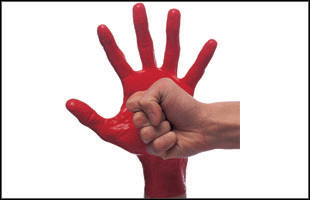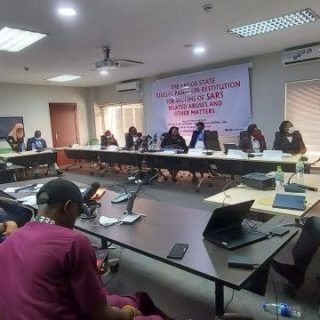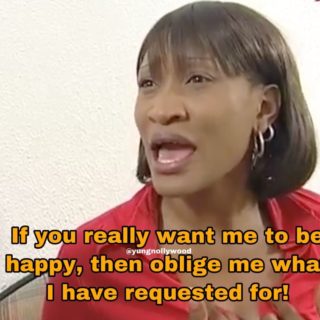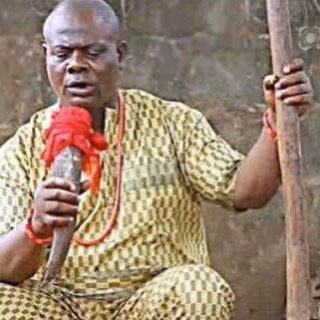Citizen is a column that explains how the government’s policies fucks citizens and how we can unfuck ourselves.
The Edo State Governorship election is on the 20th of September, and it will be interesting to know who governs Edo State for the next four years, including how the winning candidate eventually makes the state better.
Will Adams Oshiomole have his man, Osagie Ize-Iyamu become Governor of Edo State? Or will Godwin Obaskei hold on to a office he decamped to the PDP at the last time for? Importantly, will the lives of Edo indigenes get better over the next four years?
WHY IS THE ELECTION HAPPENING NOW?
Ideally, all the 36 state Governorship elections in Nigeria should be held at the same time every four years, counting from 1999 when Nigeria returned to a democracy. However some states hold their Governorship elections at a different time usually because of election petitions and the judgement of election tribunals.
The different date of the Edo State is because of the 2007 Governorship elections in the state where Adams Oshiomole took Oserhiemen Osunbor to the Edo State Governorship Elections Tribunal over the results of the April 2007 Governorship election in the state.
The Federal Appeal Court in Benin City eventually found judgement in favour of Adams Oshiomole on November 11th, 2008. This is why Governorship elections in the state holds at this time every four years.
WHO ARE THOSE CONTESTING?
Right now, candidates from 14 registered political parties are contesting for the Governorship seat of the state, but Godwin Obaseki of the PDP and Pastor Osagie Ize-Iyamu are the most popular candidates.
All the other candidates include:
Edemakhiota Osaimiamia, Action Alliance (AA), Reuben Edokpayi, African Democratic Congress (ADC), Emmanuel Obio, African Democratic Party (ADP), Lucky Idehen, All Progressives Grand Alliance (APGA), Igbineweka Osmimuede, Allied Peoples Movement (APM); Amos Areloegbe, Accord Party (AP), Isaiah kosifu, Labour Party (LP), Jonathan Enobhaysobo, New Nigeria Peoples Party (NNPP); Stevie Ozono, National Rescue Movement (NRM); Felix Obayangbon, Social Democratic Party (SDP); Jones Osagiobare, Young Progressives Party (YPP), and Akhalamhe Amiemenoghena, Zenith Labour Party (ZLP).
WHAT ARE THEIR CAMPAIGN PROMISES?
The current Governor of Edo State is running under the campaign theme “Make Edo Great Again (MEGA)”. At the launch of his reelection campaign in July, he stated: “We are going to be introducing a lot of technology. We are going to make sure that programmes we are starting particularly with agriculture, youth employment, we are going to insist that we are going to continue in that path. Edo will be the business and economic hub of the country”.
During Obaseki’s first Governorship tenure, he got to office by campaigning on 37 promises — but the question of whether he has substantially fulfilled a majority of those promises still remains.
Meanwhile, Pastor Osagie Ize-Iyamu of the APC is running for office on what he calls the SIMPLE agenda, which is an acronym for: Security, Infrastructural development, Manpower development, Public Private Partnership, Leadership and Employment creation.
He also plans on creating 70,000 jobs in four years, including 10,000 new jobs in the construction, housing and education sectors – within 4 years.
However, these guys have still not given us a detailed plan on how they will achieve these goals. They do not even have a website where their plans and how they will achieve them are properly outlined.
WHAT IS THE INDEPENDENT NATIONAL ELECTORAL COMMISSION (INEC) DOING?
The Independent National Electoral Commission (INEC) is the Government Commission established by Nigeria’s 1999 Constitution to organize elections into various political offices in the country, among other things. Section 15 of the 1999 Constitution gives it this powers.
On September 19, 2020, INEC released a final list of the governorship candidates for the election, including all the deputy governorship candidates and their respective parties.
The Commission has also released a policy on how it will go about conducting elections during the Covid-19 pandemic, including a consideration of the legal issues, health issues and logistics and/or operational issues that have to be factored into conducting elections at this time.
SOME POLITICAL CALCULATIONS
Edo State has always been a politically charged state, especially considering that all states in the South-South Geopolitical zone are now run by governors in the PDP. So, this presents the only chance for the APC to win back a state in that geo-political zone of the country.
Actually, Godwin Obaseki of the PDP was initially elected on the platform of the APC. However, he was disqualified from the Party’s primary elections, on the grounds that his academic certificates were incomplete. Pastor Ize-Iyamu (who was formerly in the PDP) then became flag-bearer of the APC in the September 29 Governorship election, with Obaseki joining the PDP at the very last minute.
The political situation of things in Edo State is ascribed by many people to Adams Oshiomole, a former Governor of the state, who is said to have found ways to disqualify Obaseki from re-contesting under the APC in the state after both of them fell out. Many say Oshiomole brought Obaseki to become Governor of the state but fell out with him after some differences. Oshiomole now supports Ize-Iyamu to be Governor of Edo State, a former Secretary to the government of the state whom he once abused in the run-up to the 2016 Governorship elections in the state.
ISSUES OF ELECTION VIOLENCE, VOTER SUPPRESSION AND VOTE BUYING

There has been prominent issues of election violence leading up to the elections in Edo State. The situation of things have gotten so bad that the Oba of Benin, Oba Ewuare 2, had to invite all the candidates, including the two major aspirants to his palace to plead with them to “reduce the political temperature” in the state. Lately, the Edo State House of Assembly has also been drawn into all sorts of crisis, all of which is not unconnected from the upcoming election in the state.
Also, voter suppression and vote buying still remain major issues in Nigerian elections. It is hoped that this election will witness significant changes in these vices, and that a free and fair election can happen, so that the votes of the people can count.
Check back everyday by 10am for more Zikoko Citizen articles.





